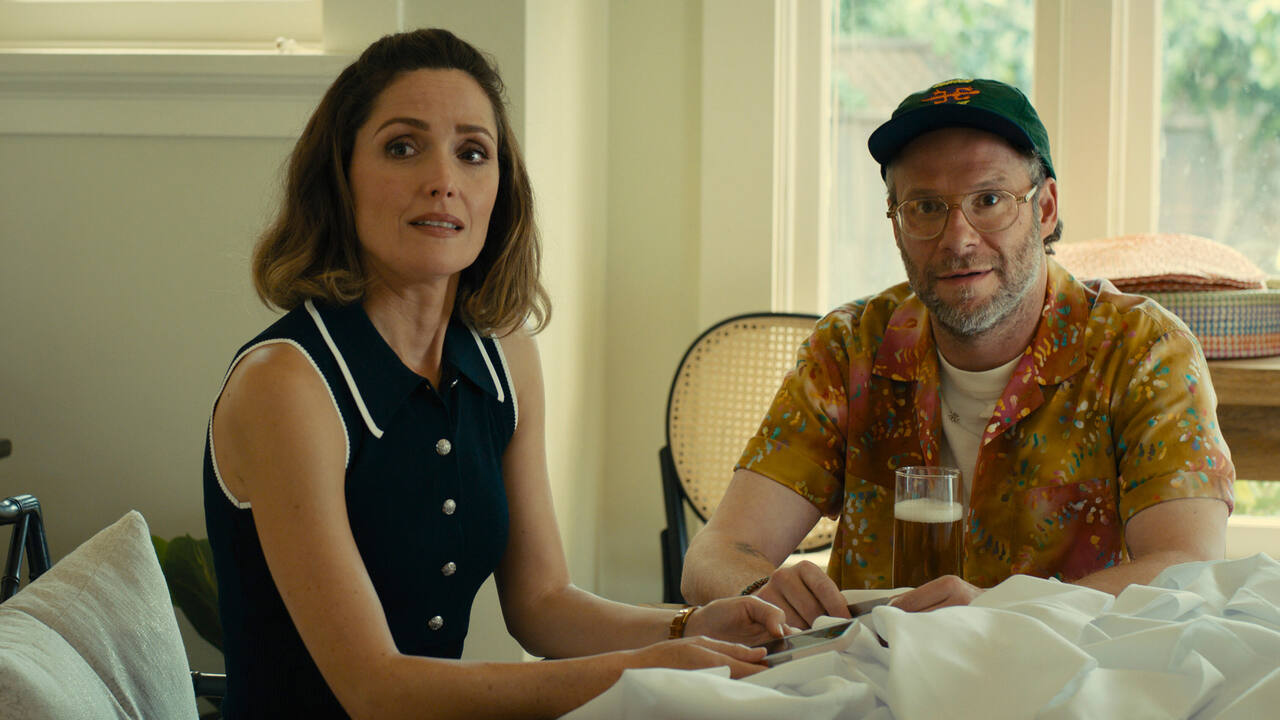
I just watched “Young Darcy Mysteries” (Season 2, Episode 8 of Platonic) and found it to be a mostly satisfying swing - funny where it needs to be, thoughtful in places, though not always perfectly balanced.
Let me start with what works. One strength of this episode is how it makes Sylvia’s growing career more than just a side‐plot; she’s stepping more fully into event planning, and this Hollywood party gig gives her enough opportunity to show how far she’s come. In previous episodes, she sometimes seemed stuck between regrets (about leaving law, raising kids) and anxieties about whether people take her seriously. Here, the opportunity forces those insecurities out into the open, while also allowing her to experience what success might feel like. Rose Byrne nails that tension - her Sylvia is all at once excited, terrified she’ll mess up, and deeply aware people are watching.
Will’s storyline - finding an unusual investor for his new bar - is also solid, giving him something more anchored than just reacting to Sylvia’s chaos or being comic relief. The investor subplot helps push Will forward in a way that feels earned rather than just putting him into more awkward situations. It shows growth, and I appreciate that. His friendship with Sylvia continues to give the episode a reliable axis: their interactions still generate laughs, surprises, and genuine moments. The chemistry between Rose Byrne and Seth Rogen remains, as always, the part that carries the show over sticky patches.
Charlie’s arc, with him thinking hard about his professional future, is interesting. Luke Macfarlane gets to explore more of Charlie’s dissatisfaction, his doubts, and those tiny, uncomfortable moments when you realize comfort might also be stagnation. The show doesn’t force a dramatic crisis for Charlie; instead, it teases the possibility that he might want something different. That makes it more grounded and relatable.
Visually and tonally, the episode maintains the lightness of Platonic: warm lighting, familiar settings (such as home and event venues), and comic timing that allows for small silences, awkwardness, and everyday absurdity. It feels like watching people you know mess up in public, then say slightly too honest things. That’s one of the things I like most about the show: its ability to be messy without ever feeling irresponsible.
Now, the rougher edges. The pacing sometimes drifts. Because there are several threads Sylvia’s planning, Will’s investor, and Charlie’s work decisions, the episode occasionally feels slightly overstuffed. A few scenes don’t land because they don’t have enough buildup; for example, some of Sylvia’s fears about failing the Hollywood party feel familiar (been here before), and the episode doesn’t always give them the room to breathe before moving on. That diminishes some emotional payoffs.
There are also moments where the comic beats feel a bit predictable. The “project too big, everything that can go wrong will go wrong” trope is in play, and though Platonic has been good at twisting such tropes, here the twists are lighter and more expected. It doesn’t surprise me as much as I hoped. Some of the dialogue also veers toward over-explanation, characters reminding us of earlier fears or regrets rather than allowing subtext to carry the weight. In a couple of scenes, I felt the humor was at risk of flattening into caricature rather than keeping that balance between realism and absurdity.
Another thing: certain supporting characters get less space than I believe they deserve. Katie, for example, is always funny and vivid, but here she’s more in the margins. The show as a whole has an ensemble strength, and this episode sometimes sidelines people who could enrich the emotional stakes. Sometimes, the Sylvia‐Will‐Charlie triangle hogs the stage so much that dynamics with friends, children, or minor characters feel underused.
Also, the wrapping up of certain arcs is light. Will’s investor storyline is promising, but I found myself wanting more specificity: who this person is, why they believe in his vision, and what costs or compromises Will might face. The episode hints at these but doesn’t delve as deeply as it might. Similarly, Charlie’s professional doubts get flagged, but we don’t yet see him act; that leaves emotional questions unanswered (which might be intended, since the season is building) but also makes this episode feel momentarily suspended rather than fully satisfying on its own.
Overall, “Young Darcy Mysteries” succeeds more often than it stumbles. It gently moves several characters forward, gives Sylvia a stage to shine, and keeps the show’s comedy grounded in emotional truth. The weaknesses are predictable beats, a bit of overstuffing, and some underused voices that don’t break the episode; they simply mean it’s not quite among the very best in the season.
As a viewer, I was invested: I cared about what Sylvia might mess up artistically or socially; I wondered whether Will would stay true to his ideals; I felt Charlie’s restlessness. That emotional connection is what Platonic does well, and this episode builds on it nicely. It doesn’t reinvent the wheel, but it polishes it, giving us enough shine to look forward to Episode 9.
Final Score- [7.5/10]
Get all latest content delivered to your email a few times a month.
Bringing Pop Culture News from Every Realm, Get All the Latest Movie, TV News, Reviews & Trailers
Got Any questions? Drop an email to [email protected]